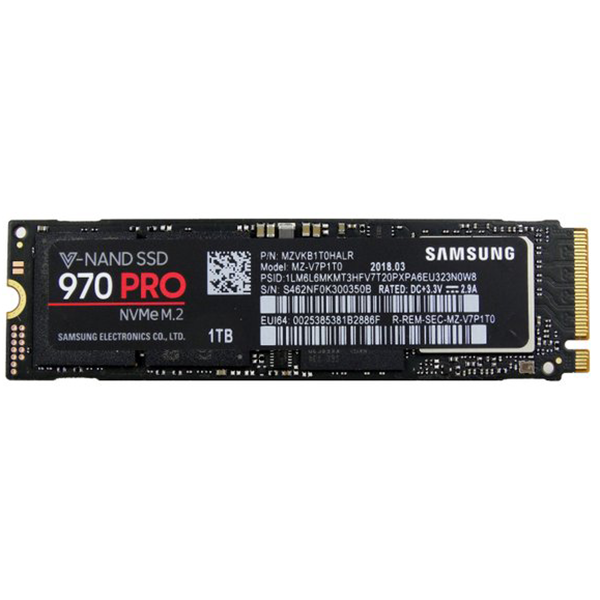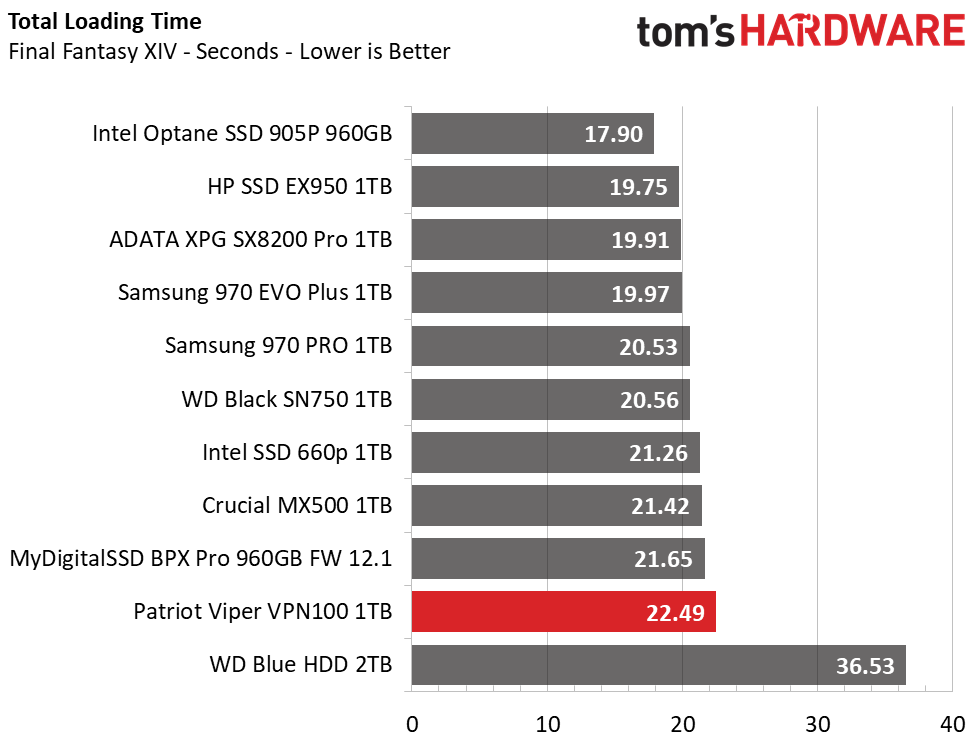Patriot Viper VPN100 NVMe SSD Review: A Tactical Upgrade
Why you can trust Tom's Hardware
1TB Performance Results
Comparison Products
Our comparison products represent many of the most popular options on the market. For starters, we pit the Viper VPN100 against the all-mighty Samsung 970 Pro and EVO Plus, as well as WD’s newly revised Black SN750. We also threw in the SMI 2262EN-powered HP SSD EX950 and Adata XPG SX8200 Pro. The lineup wouldn’t be complete without MyDigitalSSD’s BPX Pro with updated 12.1 firmware and Intel’s SSD 660p.
Trace Testing – PCMark 8 Storage Test 2.0
PCMark 8 is a trace-based benchmark that uses Microsoft Office, Adobe Creative Suite, World of Warcraft, and Battlefield 3 to measure the performance of storage devices in real-world scenarios.
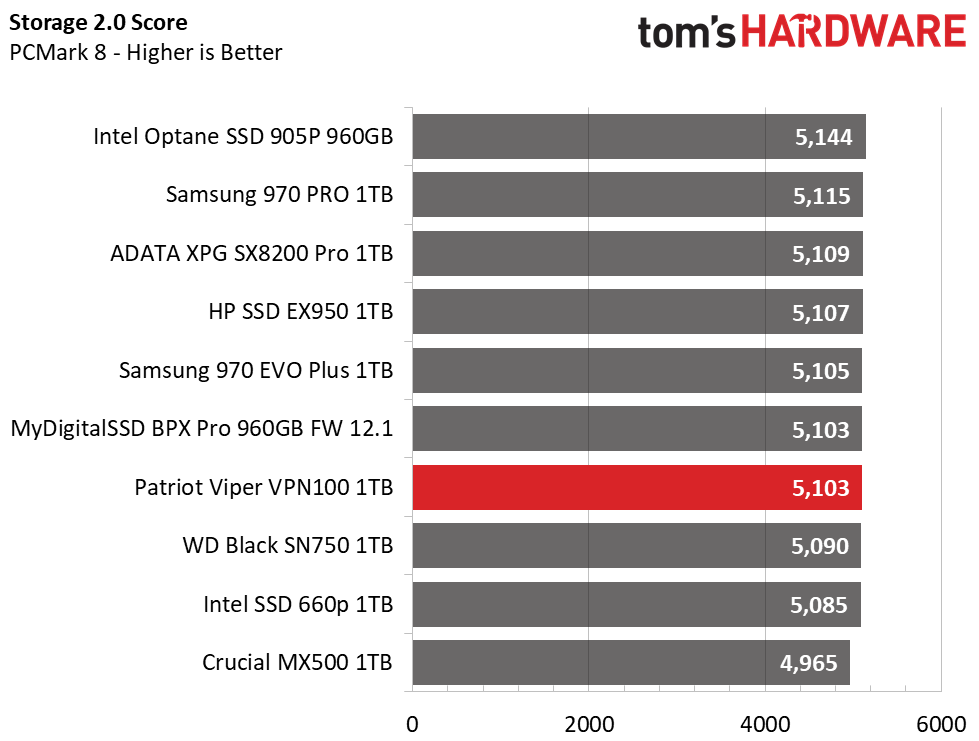
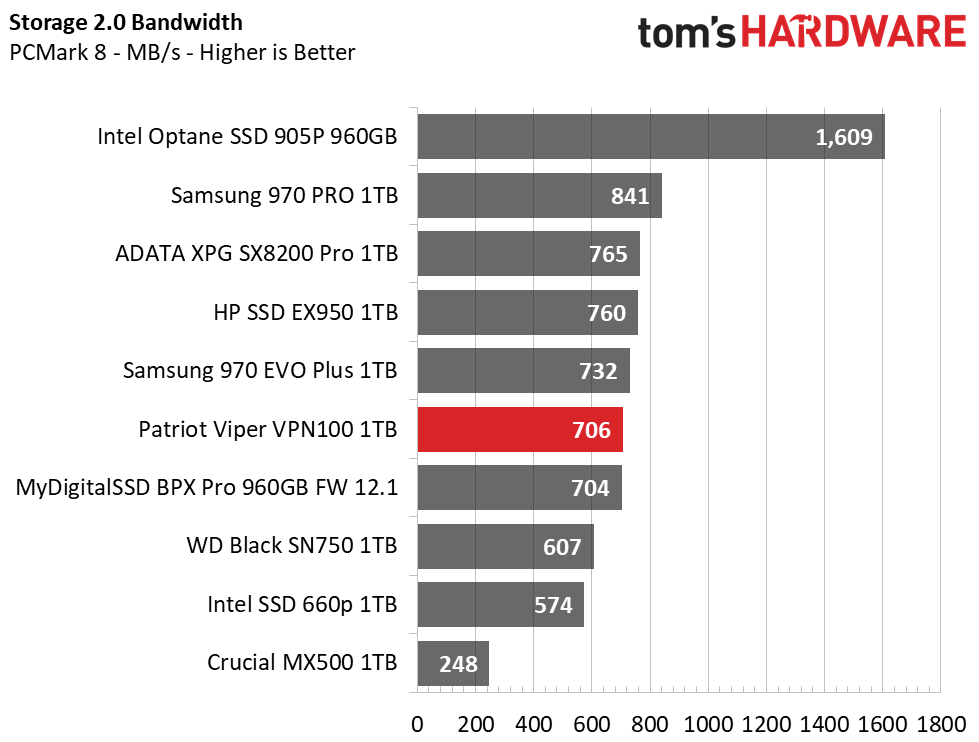
Samsung’s 970 Pro took the win as the fastest flash-based product on our charts, followed by the Silicon Motion-powered SX8200 Pro and EX950. Patriot’s Viper VPN100 came in behind the 970 EVO Plus, taking sixth place overall.
Game Scene Loading - Final Fantasy XIV
The Final Fantasy XIV StormBlood benchmark is a free real-world game benchmark that easily and accurately compares game load times without the inaccuracy of using a stopwatch.
The Viper's game load times weren’t at the top of our charts. To the contrary, it ranked last in our comparison pool of flash SSDs and was even beat by Intel’s QLC 660p. But, at 22 seconds vs. 20 seconds, the total load time wasn’t far off from some of the best. That’s not to mention it was over 30% faster than an archaic HDD.
Transfer Rates – DiskBench
We use the DiskBench storage benchmarking tool to test file transfer performance with our own custom 50GB block of data. Our data set includes 31,227 files of various types, like pictures, PDFs, and videos. We copy the files to a new folder and then follow up with a read test of a newly-written 6 GB file.
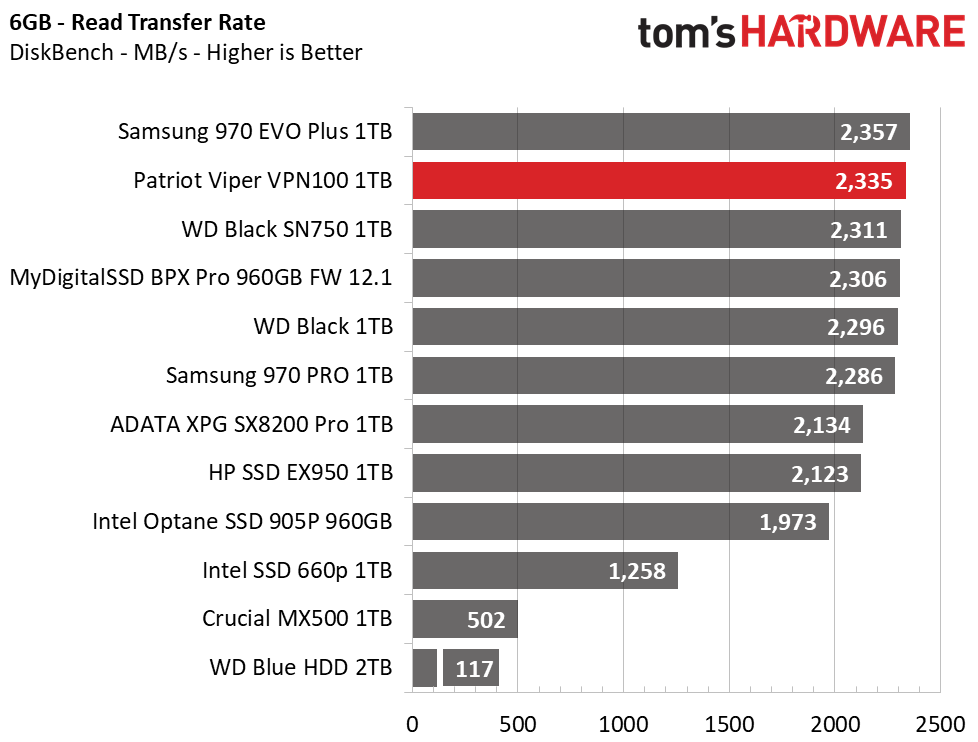
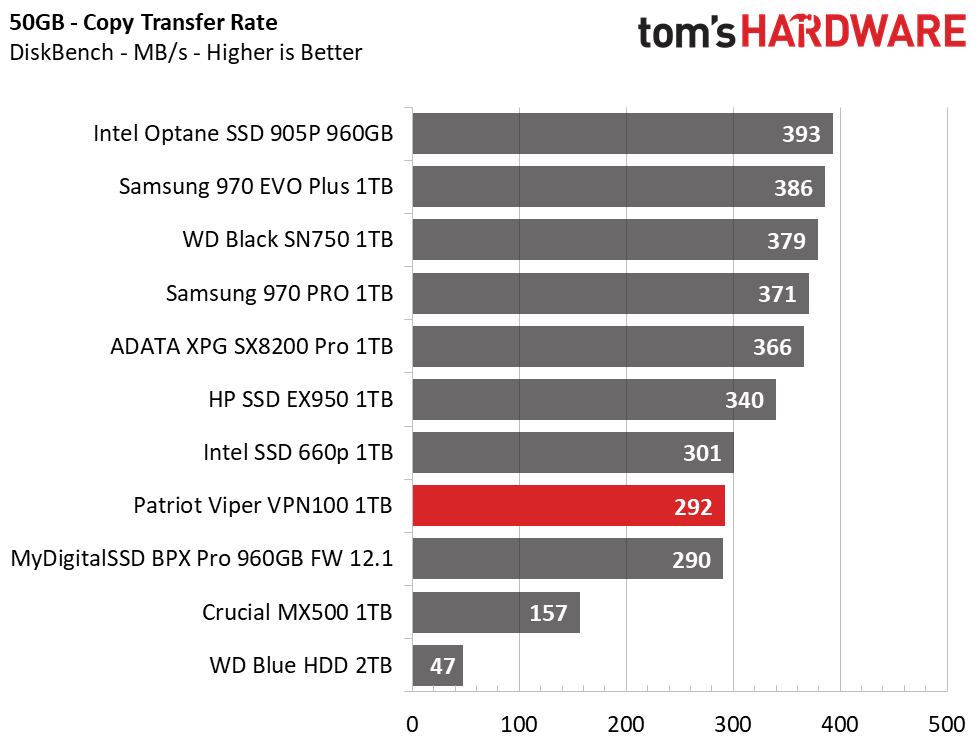
Moving files around on the Viper VPN100 went quickly. While you would think that the extra over-provisioning from the BPX Pro would give it the lead over the Viper VPN100, we can see that wasn't the case without the burdens of a heavy enterprise-class workload. With an average of 292MB/s, it essentially tied the BPX Pro and was significantly faster than a SATA SSD or HDD. The Viper ranked eighth overall during the 50GB copy test, and second in read performance.
SYSmark 2014 SE
Like PCMark, SYSmark uses real applications to measure system performance. SYSmark takes things much further, however. It utilizes fourteen different applications to run real workloads with real data sets to measure how overall system performance impacts the user experience. BAPCo's SYSmark 2014 SE installs a full suite of applications for its tests, which includes Microsoft Office, Google Chrome, Corel WinZip, several Adobe software applications, and GIMP. That also makes it a great test to measure the amount of time it takes to install widely-used programs after you install a fresh operating system.
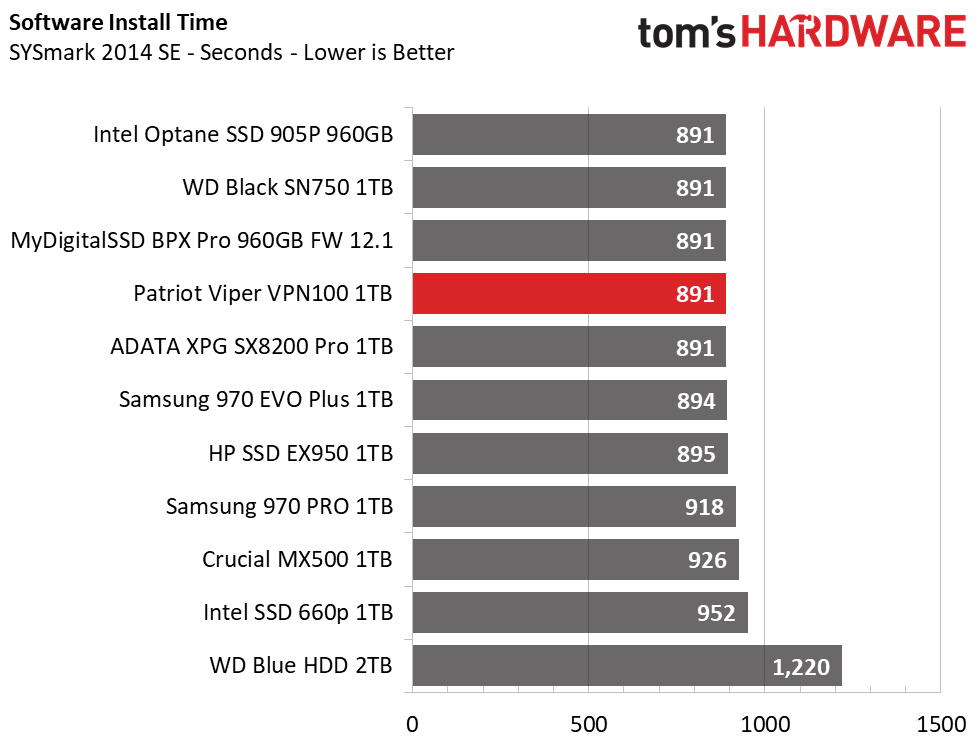
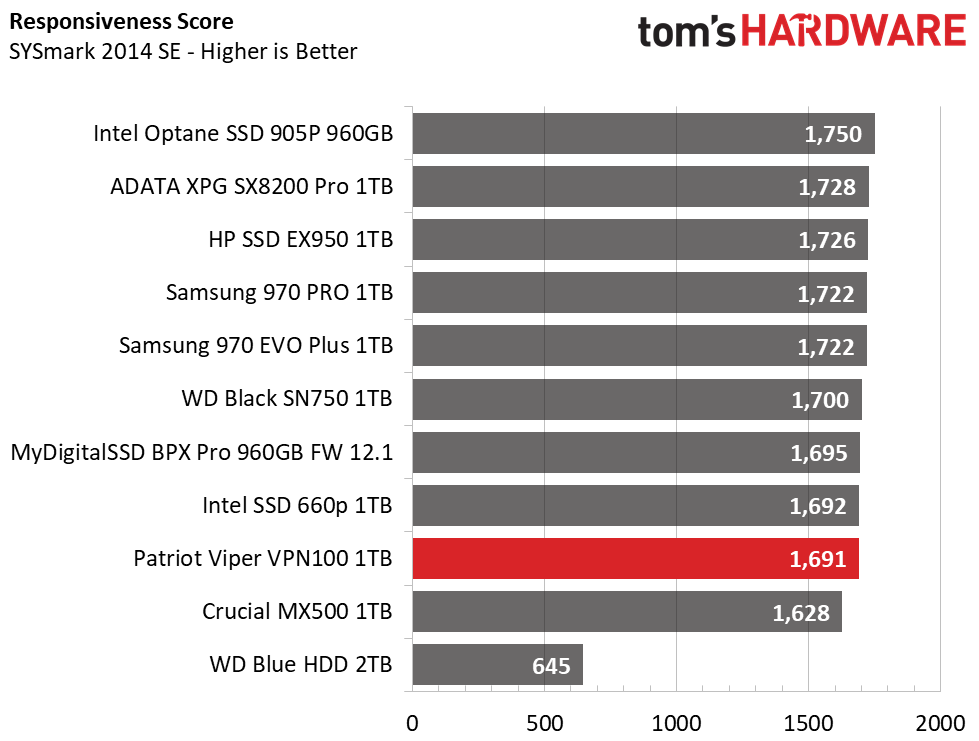
The Viper installed SYSmark in 14 minutes and 51 seconds, the same as Intel’s Optane 905P, which was quite impressive.
ATTO
ATTO is a simple and free application that SSD vendors commonly use to assign sequential performance specifications to their products. It also gives us insight into how the device handles different file sizes.
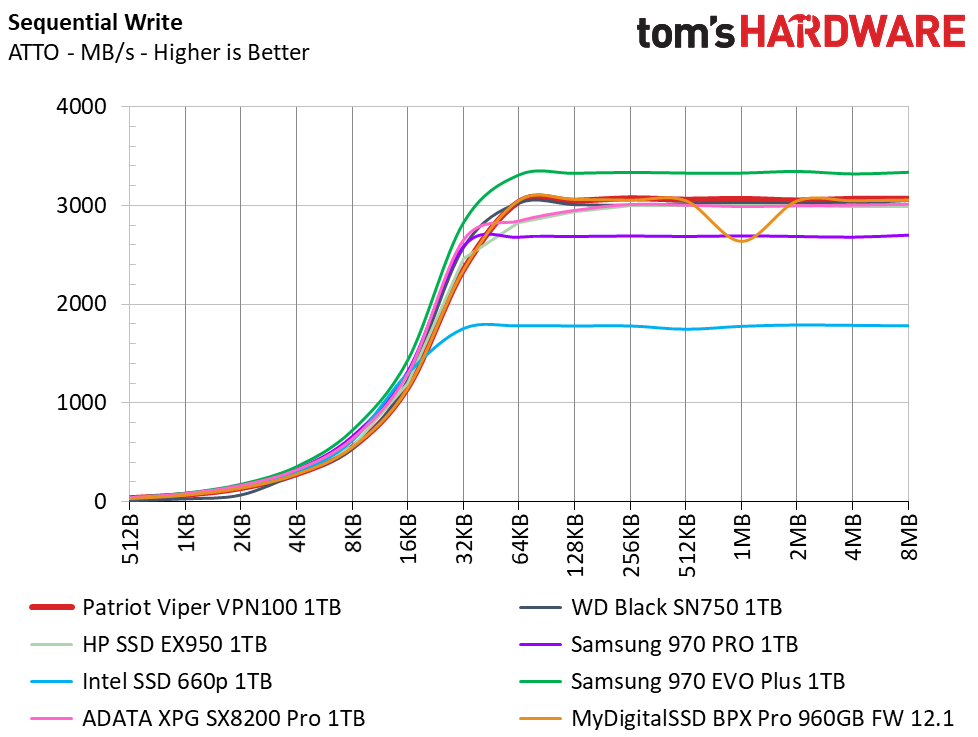
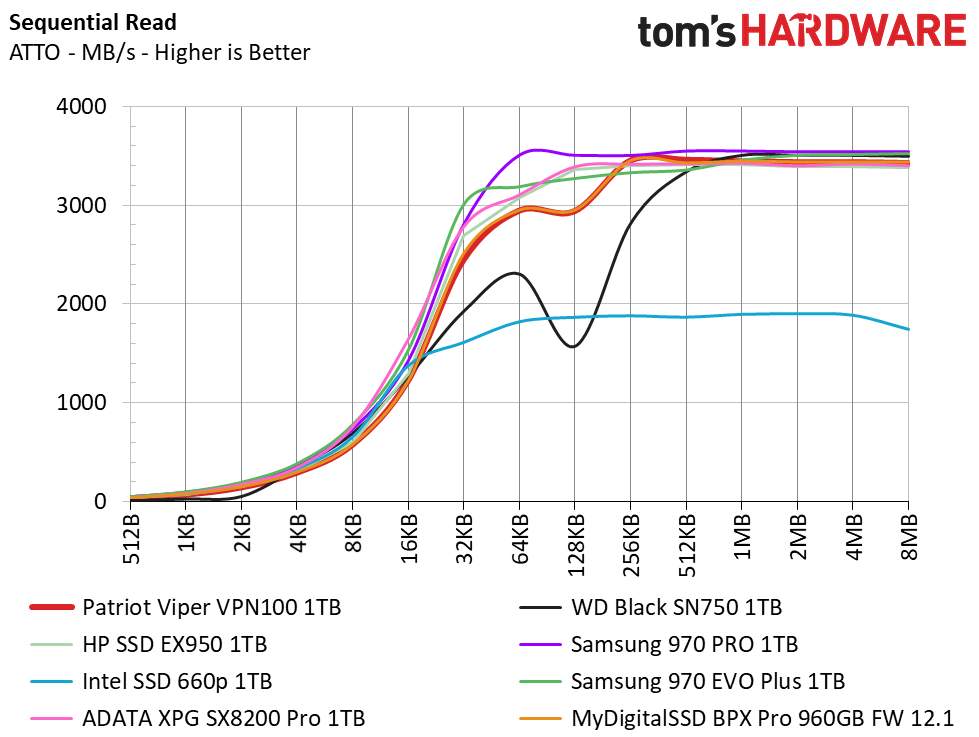
The Viper VPN100 delivered impressive results, but it just wasn’t as impressive as some other drives. Following a similar performance result as the BPX Pro, the Viper's read and write performance hit the rated target speeds of 3.45/3.00 GB/s of read/write throughput in ATTO. But it took a hit along the way. At the 128KB file size, write performance dropped before it improved to its rated specification.
CrystalDiskMark
CrystalDiskMark (CDM) is a simple and easy to use file size benchmarking tool.
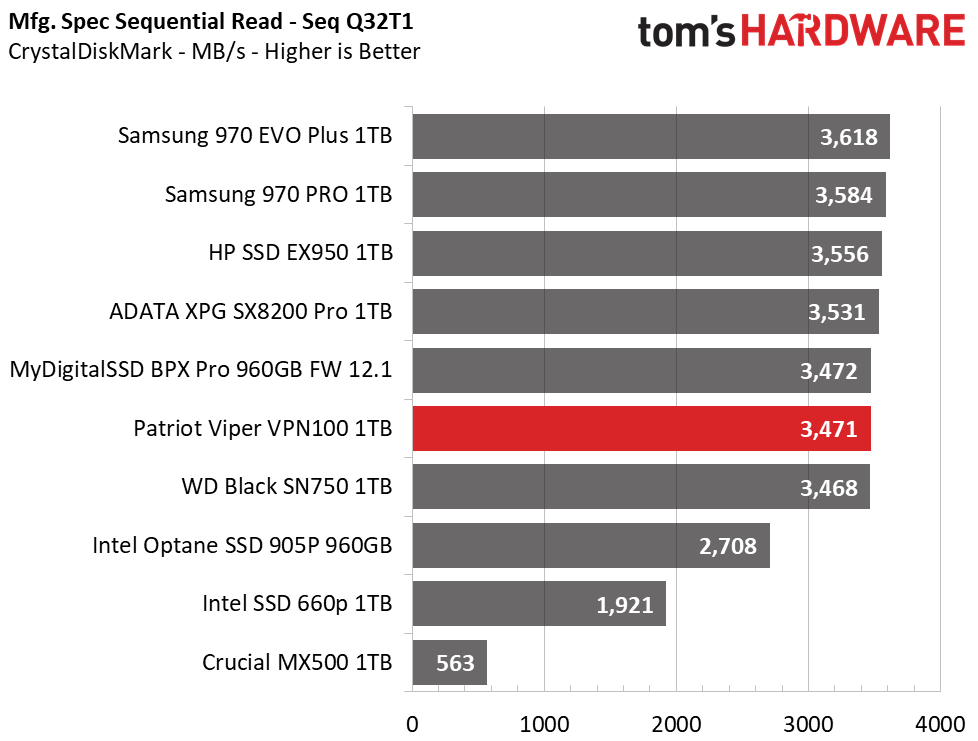
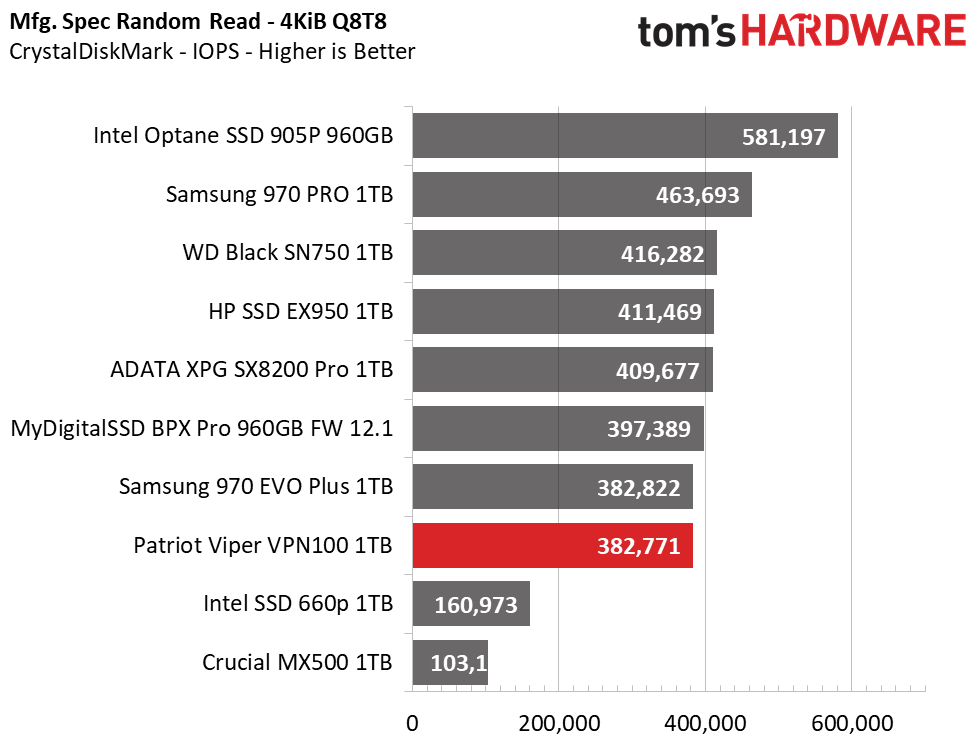
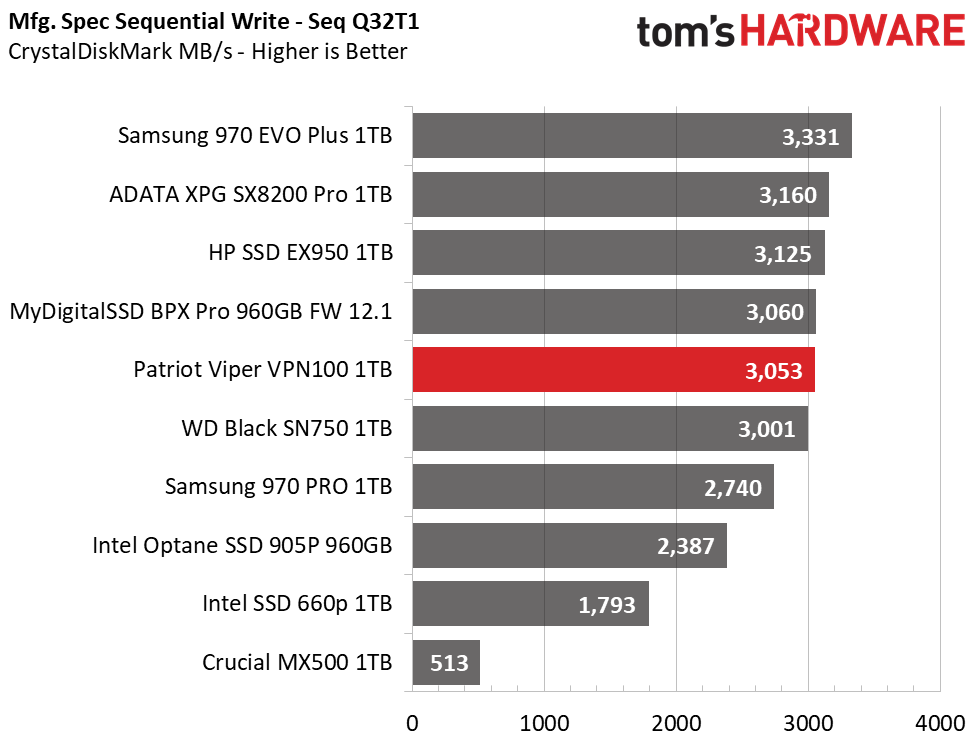
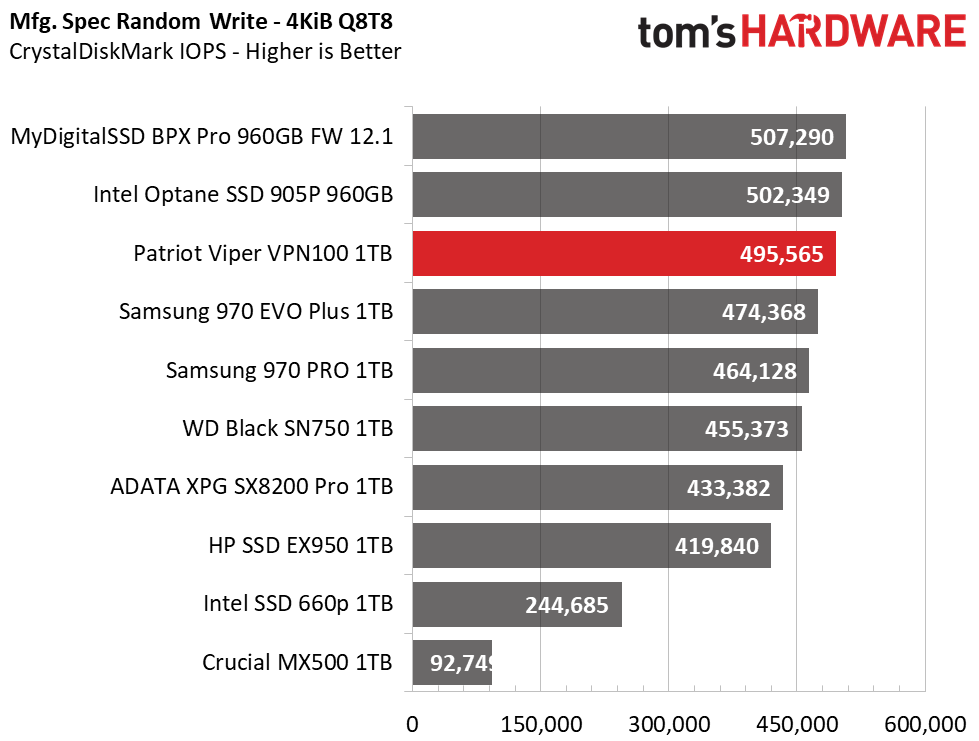
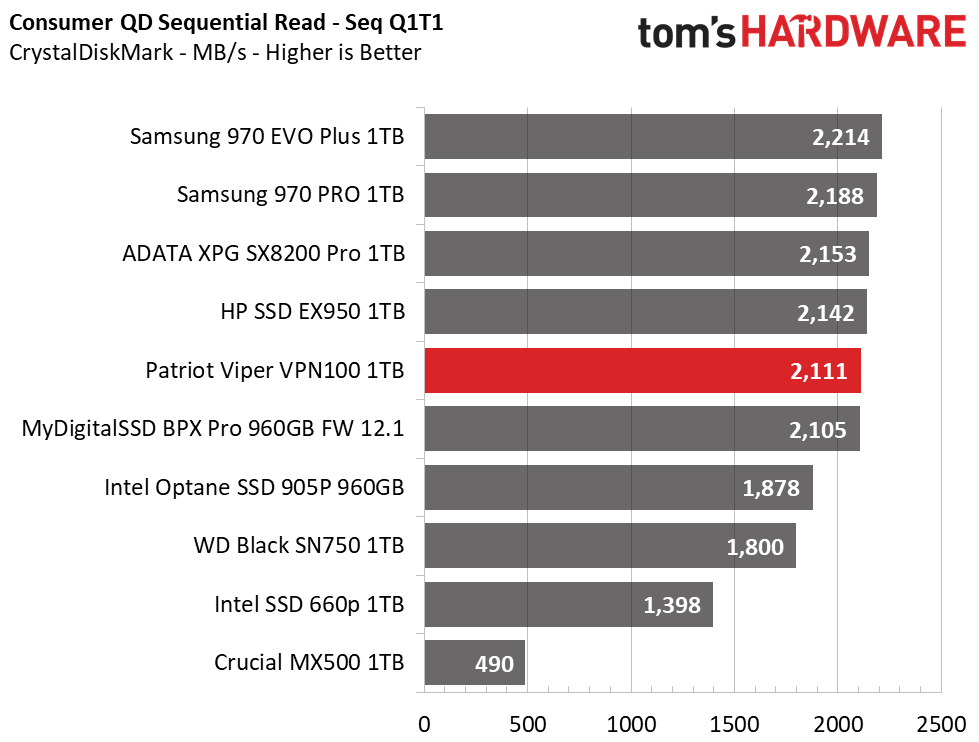
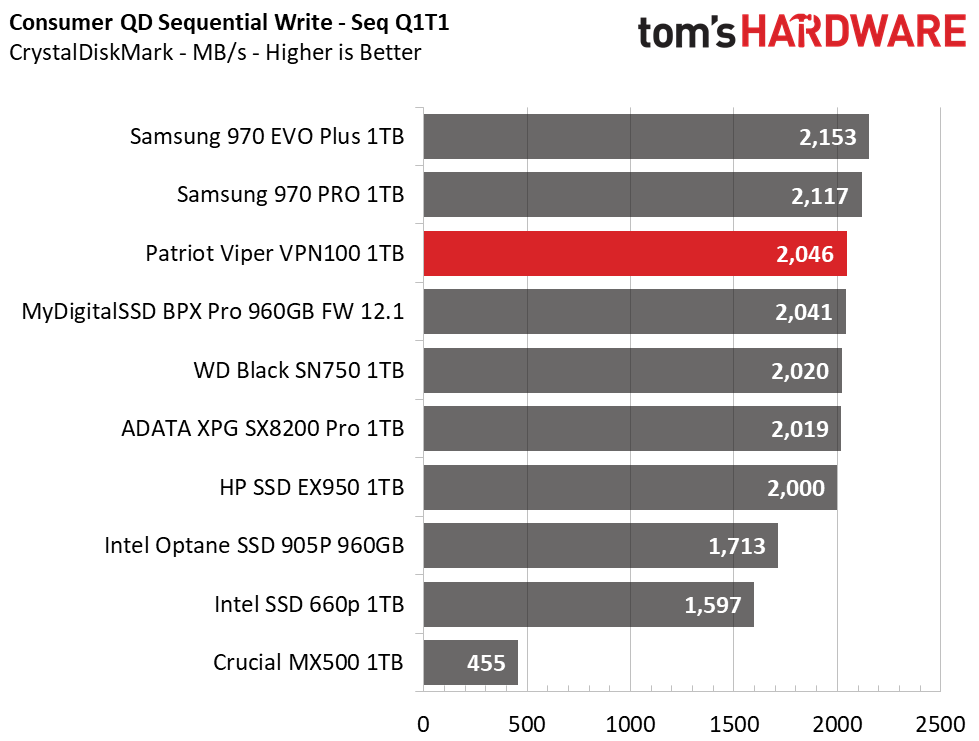
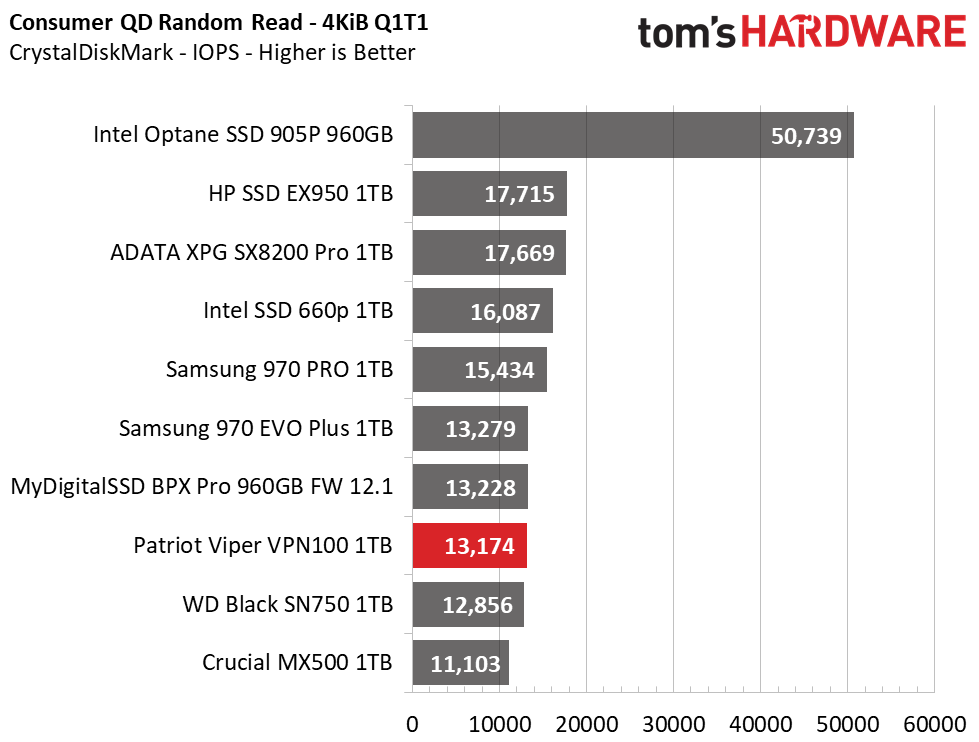
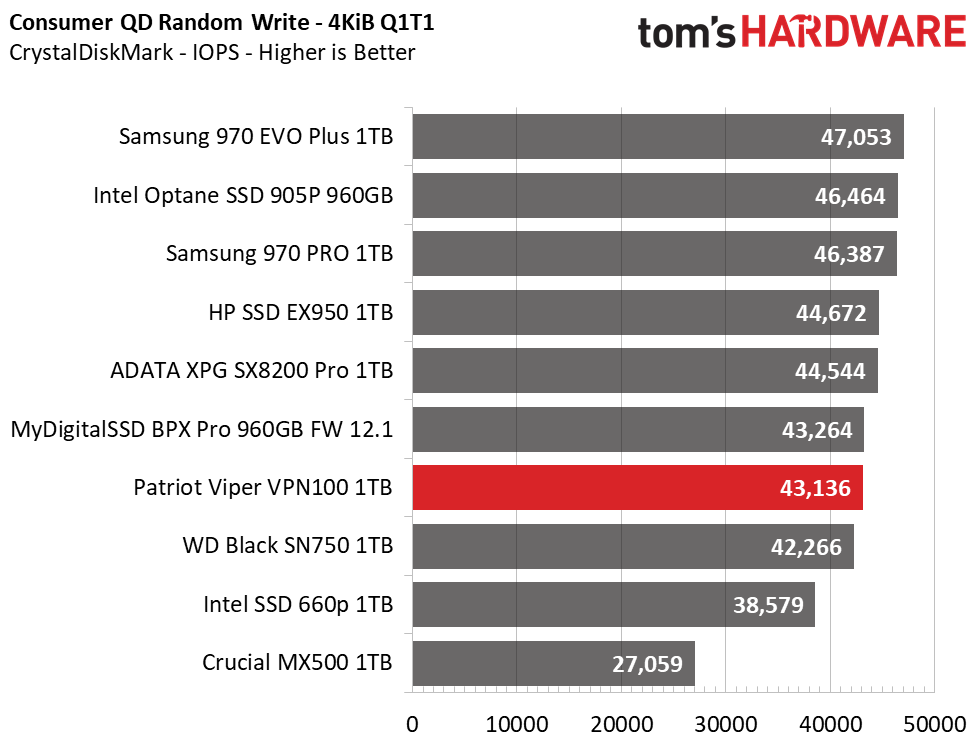
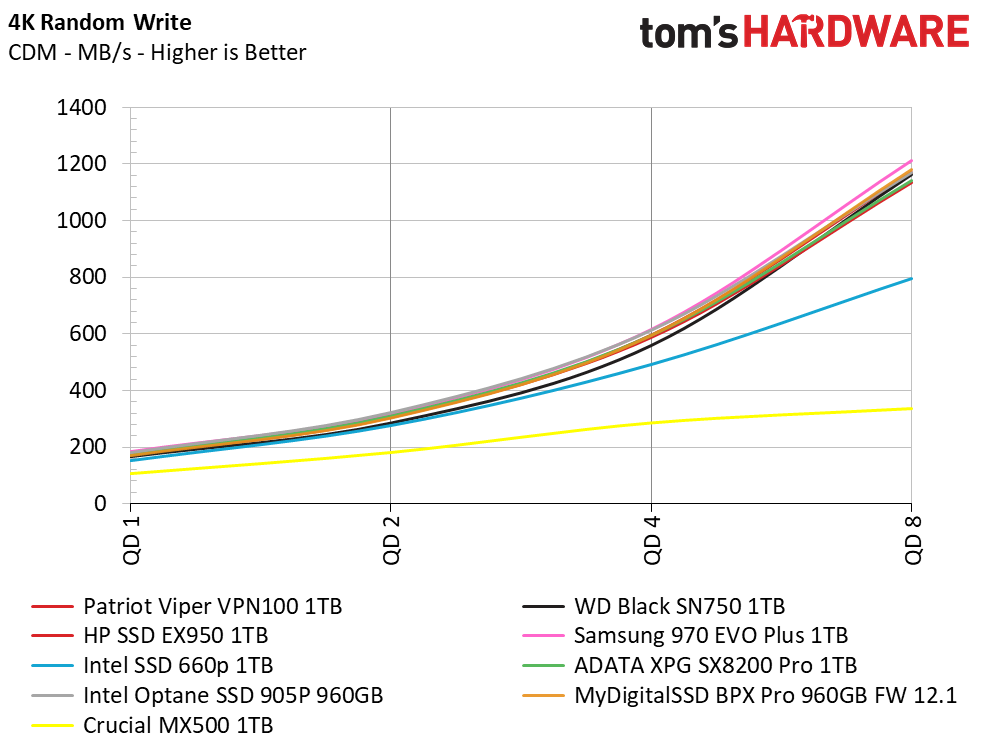
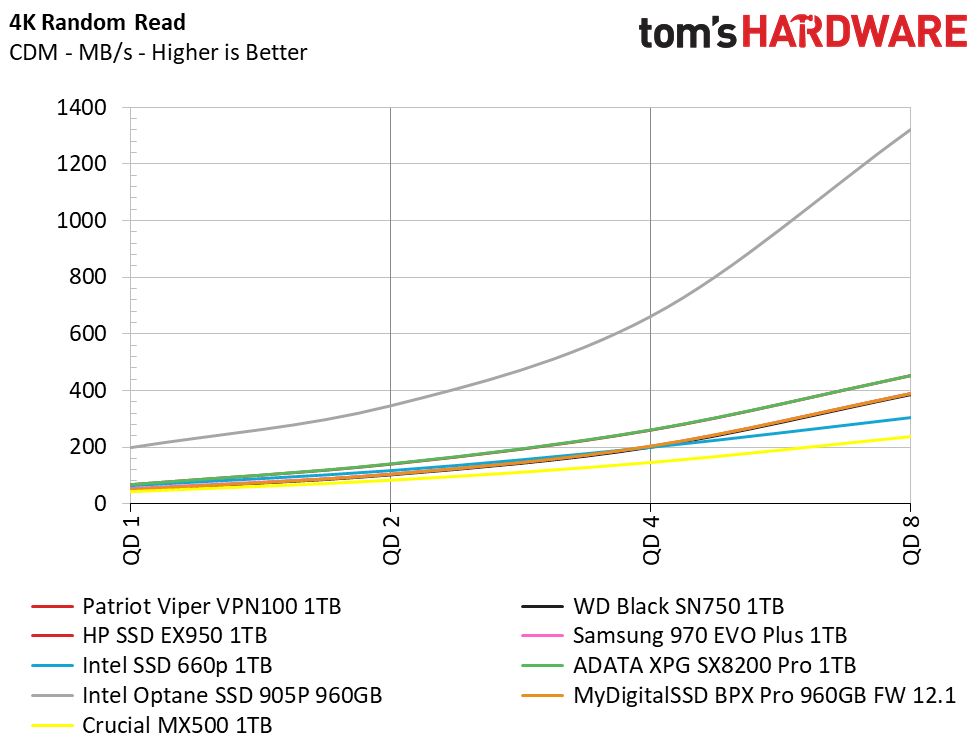
Sequential performance came in at 3.47/3.05 GB/s read/write at a queue depth (QD) of 32. Scaling our workload down to a more realistic QD1 revealed performance wasn’t quite as good, but competitive nonetheless. At QD1 the Patriot Viper VPN100 delivered ~2.1/2 GB/s of sequential read/write throughput.
At QD1 the Viper delivered over 13,000/43,000 read/write IOPS, but this wasn’t as impressive as some of its competition. Pushing harder to a QD of 64 unlocked 380,000/~500,000 random read/write IOPS. The BPX Pro's overprovisioning seemed to give it a slight advantage in both reads and writes, but overall, the Viper VPN100 is far more capable than any SATA SSD.
Sustained Sequential Write Performance
Official write specifications are only part of the performance picture. Most SSD makers implement an SLC cache buffer, which is a fast area of SLC-programmed flash that absorbs incoming data. Sustained write speeds can suffer tremendously once the workload spills outside of the SLC cache and into the "native" TLC or QLC flash. We hammer the SSDs with sequential writes for 15 minutes to measure both the size of the SLC buffer and performance after the buffer is saturated.

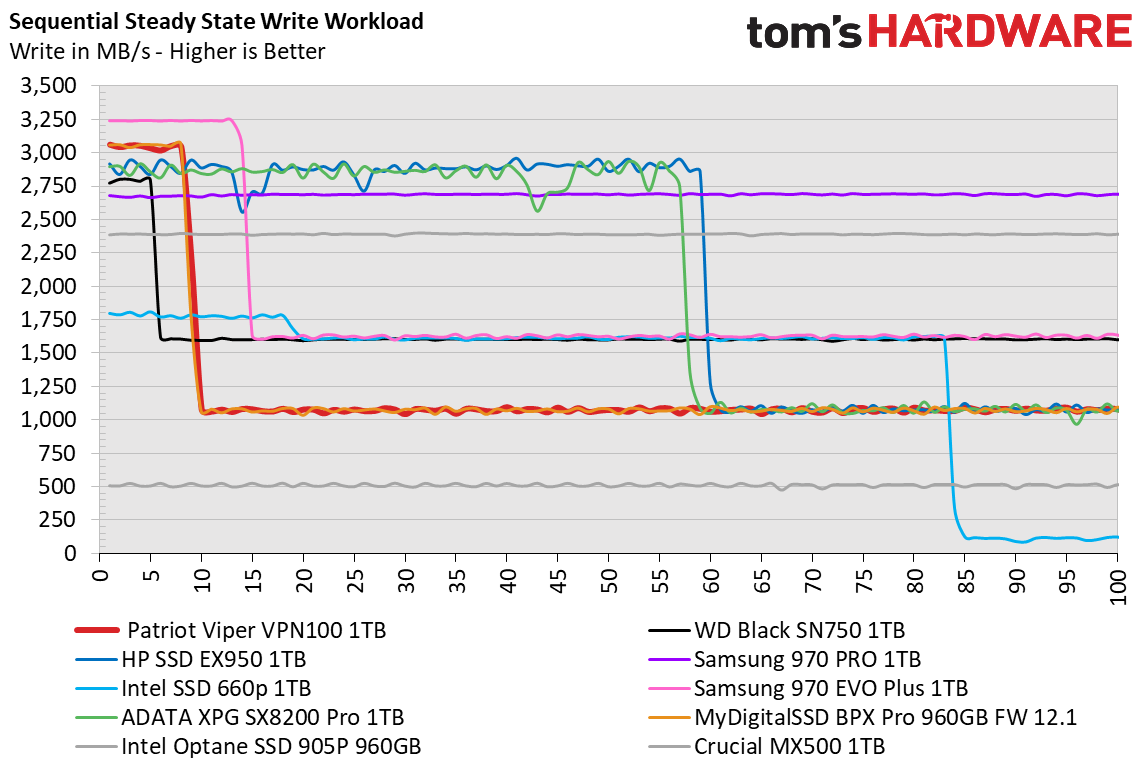
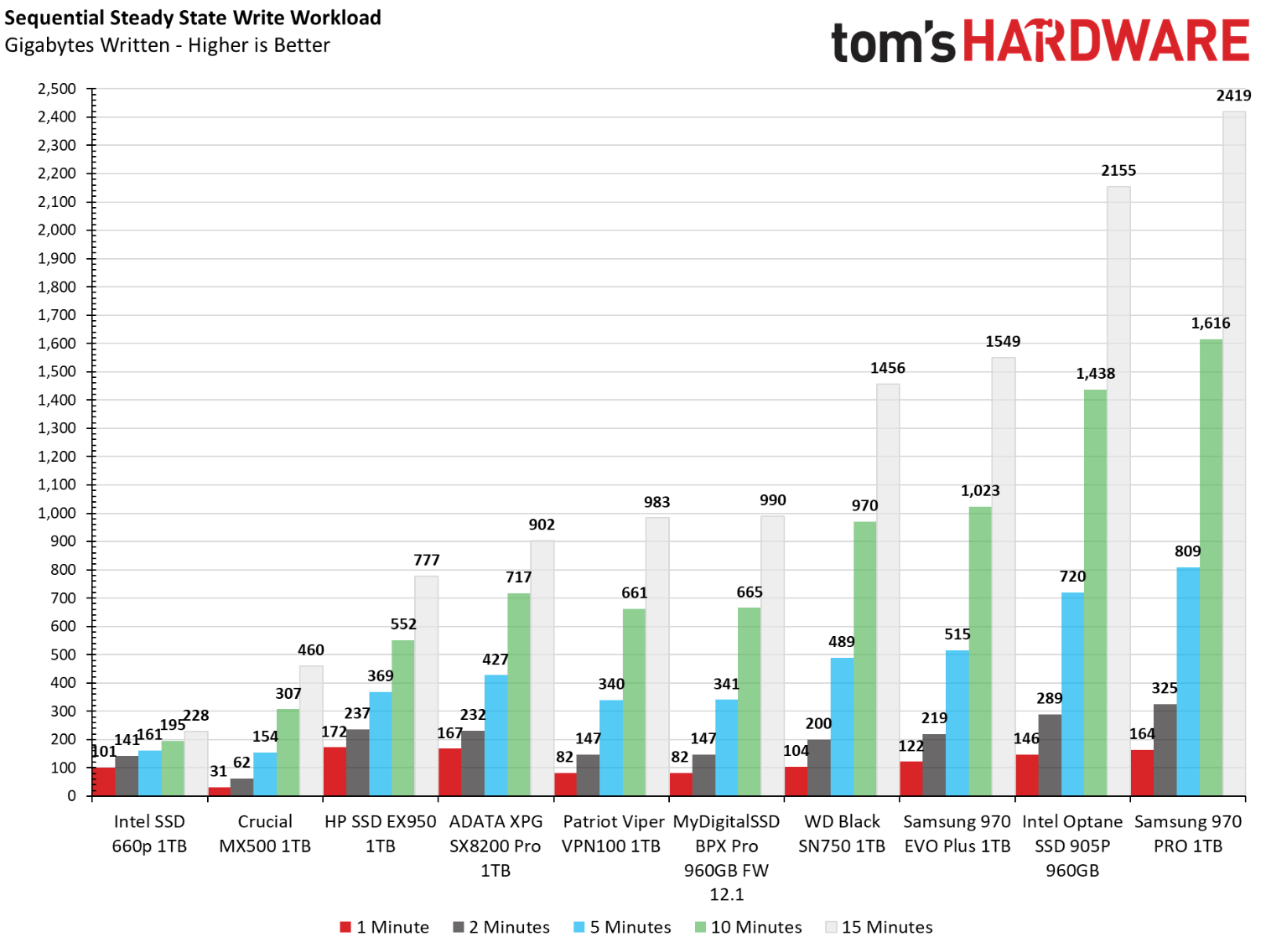
Like all Phison E12-powered SSDs, the Viper VPN100 has an SLC cache that absorbs inbound writes. While the Viper is rated for up to 3 GB/s of write throughput, we found that it is limited to a cache capacity of about 24GB (the same as the BPX Pro). Once the cache is full, the controller pushes any remaining inbound data directly to the die, causing performance to drop to roughly ~1075 MB/s until the drive is completely full.
Power Consumption
We use the Quarch HD Programmable Power Module to gain a deeper understanding of power characteristics. Idle power consumption is a very important aspect to consider, especially if you're looking for a new drive for your laptop. Some SSDs can consume watts of power at idle while better-suited ones sip just milliwatts. Average workload power consumption and max consumption are two other aspects of power consumption, but performance-per-watt is more important. A drive might consume more power during any given workload, but accomplishing a task faster allows the drive to drop into an idle state faster, which ultimately saves power.
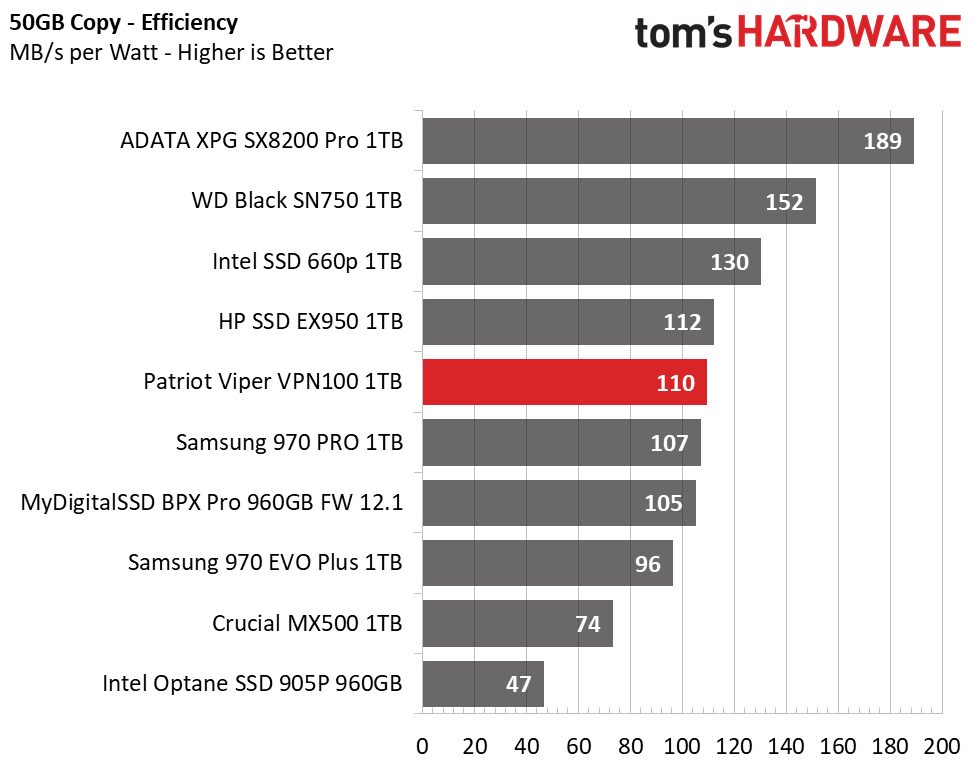
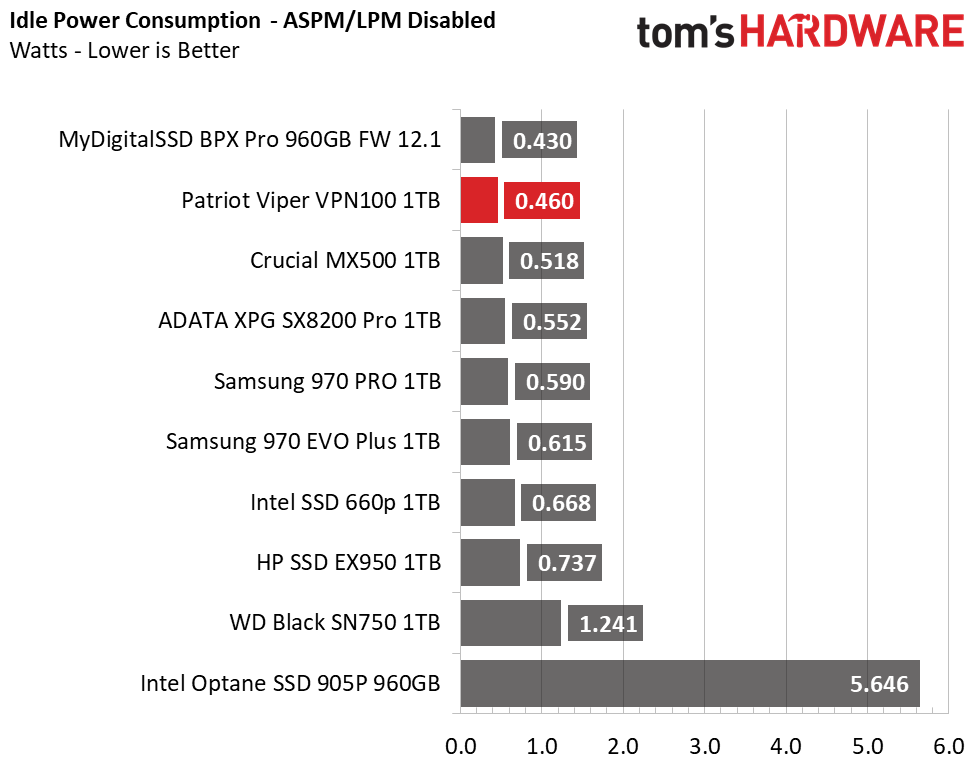
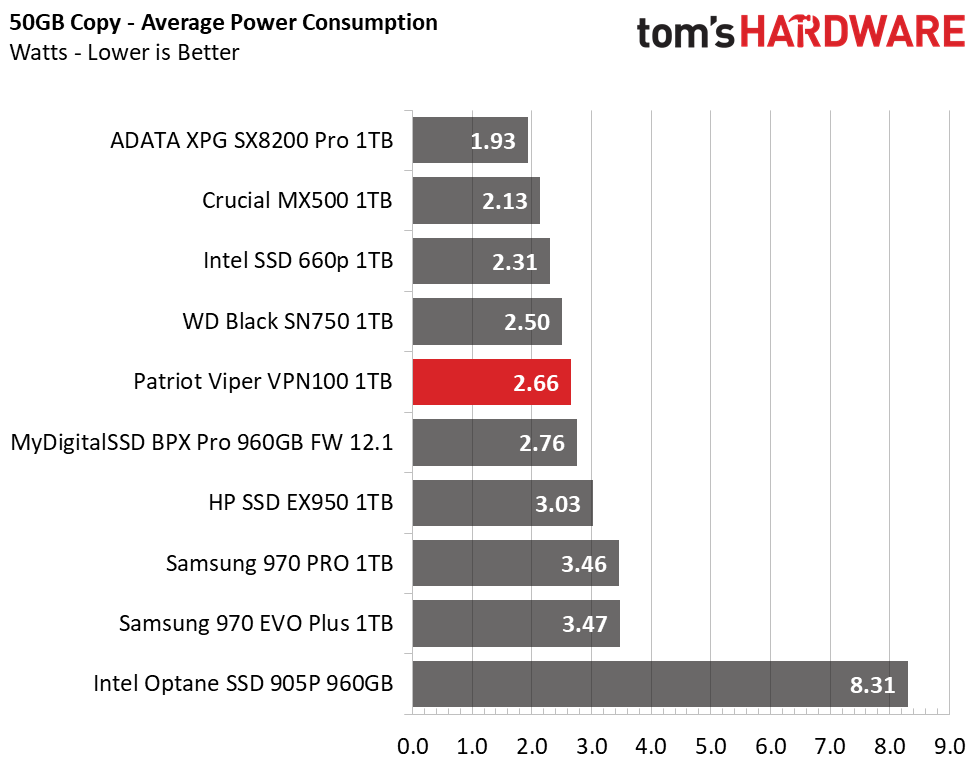
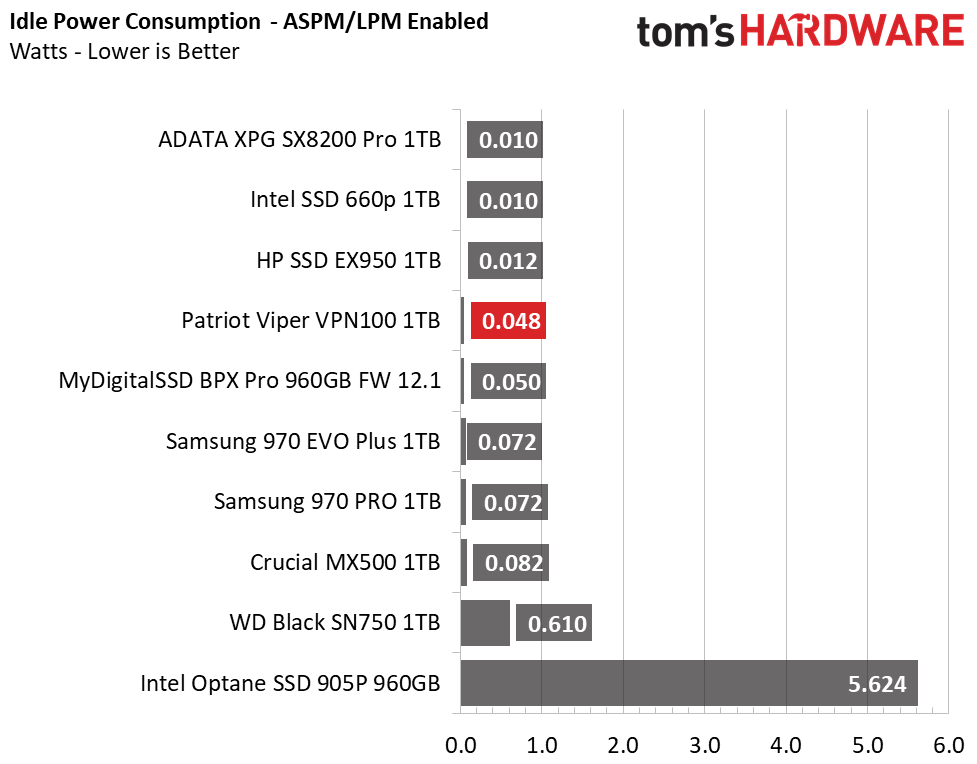
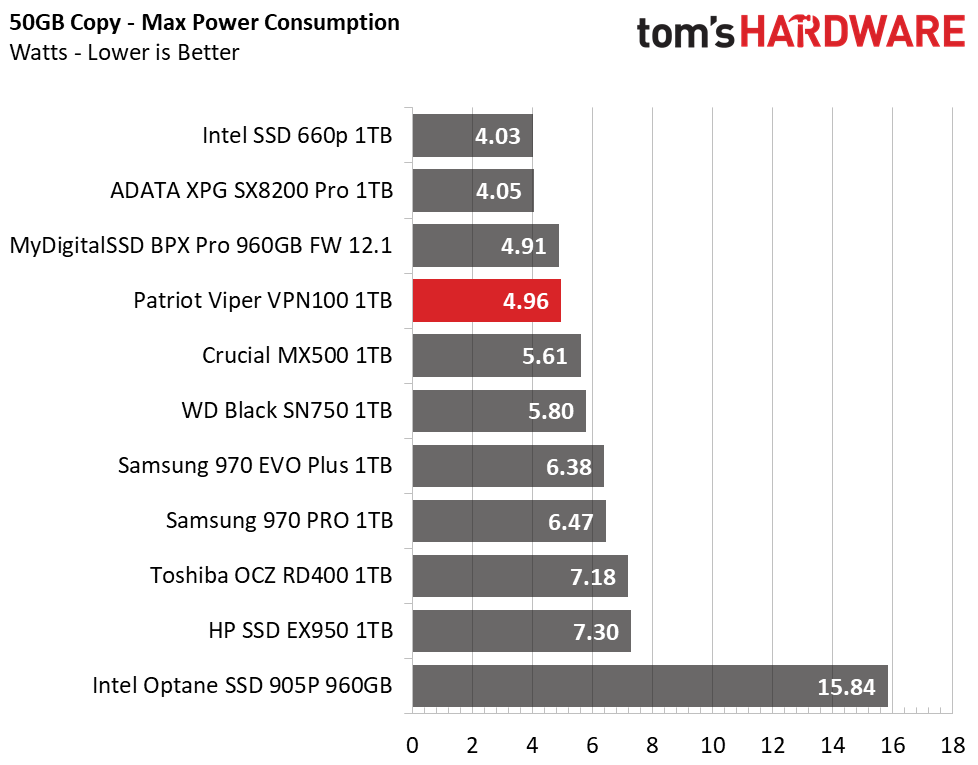
At idle the Viper consumed a little under half a watt with ASPM disabled and sipped just 48mW with the feature enabled. The drive maxed out at 5W during our 50GB copy test and averaged 2.66W. Putting that together with our transfer speed data, we see that the Viper VPN100 is fairly efficient–more so than the Samsung 970 series and BPX Pro.
MORE: Best SSDs
MORE: How We Test HDDs And SSDs
MORE: All SSD Content
Get Tom's Hardware's best news and in-depth reviews, straight to your inbox.

Sean is a Contributing Editor at Tom’s Hardware US, covering storage hardware.
